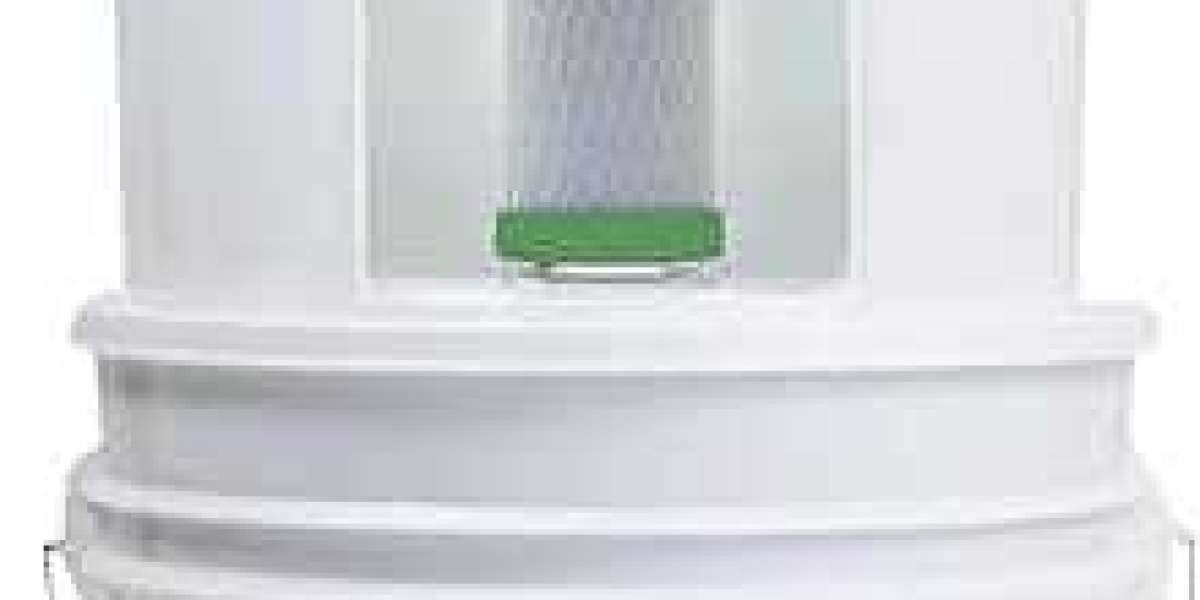With life moving at a fast pace and more people prioritizing their health, having access to clean drinking water and ice is more important than ever. With sustainability on everyone's mind and convenience for all, the water vending machine and ice vending industries present an exciting opportunity for entrepreneurs seeking a low-maintenance, high-reward business. The article discusses the emergence of this unique industry, its advantages, and the factors that should be present when entering it.
The Rise of Vending Machines
A water vending machine is similar to other self-service booths that dispense pure drinking water from a source to consumers. Usually located in high-traffic areas, such as grocery store parking lots, gas stations, and apartments, they can be considered a good, eco-friendly alternative to bottled water, as they are more affordable for consumption.
Key Benefits of Vending Machines
Most importantly, it is the machine's availability at any time of day or night that allows anyone to purchase clean, filtered water. There is no considerable need to store water in-house, or offer deliveries, or pay rent.
- An Environmentally Friendly Solution: Using refillable containers for water helps protect the environment. It supports recycling and makes it easier to live in a more eco-friendly way.
- Low Operational costs: All operational costs are kept to a minimum, as these machines require minimal staff and minimal maintenance. It is a low-cost venture.
- High Demand: People are shifting towards healthier lifestyles and embracing environmental responsibility, driving the adoption of intelligent solutions, such as filtered water for daily use. This has led to a significant increase in demand, making water vending machines a viable solution.
The Booming Ice Business
The vending business has gained incredible momentum in recent years, positioning itself as a high-demand market that serves families, campers, restaurants, and construction workers alike, all of whom are drawn to ice in warmer regions.
What Makes the Vending Business Profitable?
- All-Year Demand with Seasonal Peaks: Demand is consistent throughout the year; however, the summer months and holidays may result in significant spikes in demand for ice.
- Bulk Quantity: Clients are typically sold ice in larger quantities compared to convenience stores, often at lower prices, making it a good value for money.
- Self-Service with Low Overheads: Similar to water vending, ice vending enables self-service operations with reduced overhead costs. After the initial investment is made, all that is left is regular maintenance, and the profit will be worth it.
- Minimizing Waste: Ice is produced on demand and sold immediately, with minimal risk of product loss due to melting, unlike conventional ice delivery businesses.
| Category | Details |
| Startup Cost | $20,000 – $100,000 (varies by machine type and features) |
| Maintenance Frequency | Every 2–4 weeks (cleaning, filter change, equipment checks) |
| Ideal Locations | Gas stations, apartment complexes, grocery parking lots, parks |
| Profit Margin (Water) | Cost per gallon: $0.01–$0.05; Sell price: $0.25–$0.50 |
| Profit Margin (Ice) | Cost per 10–20 lbs: $0.10–$0.20; Sell price: $1.50–$2.50 |
| Licensing Requirements | Local business permit + health department compliance |
| Revenue Potential | High (due to low overhead and strong seasonal/steady demand) |
Combining Water and Ice Vending for Maximum ROI
Many businesses, such as Double T Holdings, sell both water and ice. This generates more revenue and is more convenient for customers.
Advantages of Dual-Service Units
- Space Efficient: One place for both streams of income.
- The Retention of Customers: A customer who comes to buy water might also purchase ice, and vice versa.
Perfect Venues for Water and Ice Vending Machines
Location is an indispensable factor for the successful establishment of vending machines and vending business ventures. Some of the lucrative locations for this kind of business enterprise include:
- Busy city areas
- Near housing complexes
- Outside supermarkets
- Gas stations' parking lots
- Recreational areas and parks
- College campuses and gyms
- Visibility and access to foot traffic are key factors in the site selection criteria.
Startup Costs and Profit Margins
The average initial investment for a combination water and ice vending machine ranges from $20,000 to $100,000, depending on size, features, and brand. However, it is usually the case that the return on investment is very quick.
- Cost to Produce: The cost of producing purified water is approximately $0.01 to $0.05 per gallon.
- Retail Pricing: Usually sold at $0.25 to $0.50 per gallon.
- Cost to Produce Ice: More or less $0.02 to $0.06 per pound.
- Retail Price: Typically sold for $1.50 to $2.50 per 10- to 20-pound bag.
As such, and there with low maintenance levels, many operators break even within the first year.
Licensing and Health Regulations
Starting vending machines and an ice vending operation under these health and safety regulations requires the following:
- Acquiring local business permits
- Compliance with the FDA and EPA water quality
- Regular maintenance and sanitation schedule
- Posting inspection certificates where required
- Meeting these regulations will not only legalize operations but also establish consumer confidence.
Marketing Your Vending Business
This is because vending machines are typically located in areas where many people can easily see and access them. Therefore, it is often important to market your vending machine strategically for increased visibility. Consider the following:
- Local SEO: Optimize your Google Business Profile to help people nearby easily find your vending location.
- Flyers and Community Boards: Utilize venues such as apartment complexes, gyms, and local stores to post your promotions.
- Loyalty Programs: Repeat customers can be enticed with digital punch cards or referral bonuses.
- Green Campaigns: Capture the market of the environmentally conscious consumer by promoting sustainable and eco-friendly practices.
Future Trends
- Smart Vending Technology: Enables operators to remotely monitor performance, inventory, and maintenance through the power of the Internet of Things (IoT).
- Contactless Payments: Norm has evolved to include credit cards, mobile wallets, and, more recently, subscription plans, replacing cash.
- Solar Power Integration: Stand-alone setups are green but becoming more mainstream.
- Flavor Add-Ons: Some companies are testing vitamin-enriched water and flavor infusion features to enhance their offerings.
This will keep you a step ahead of the competition in the marketplace where you are trading and in the relevance of your business operations.
Final Verdict
Investing in vending machines and the ice vending business would further provide the entrepreneur with an opportunity to capitalize on the increasing demand for clean water and convenient ice. It could provide less overhead with high returns and increasing consumer preference for self-service solutions; thus, this business model is both sustainable and scalable.
For its attractive investment options in financial independence, water and ice vendor businesses prove to be one of the best combinations for a new entrepreneur or someone diversifying an existing portfolio. This kind of business could become popular very quickly in such an environment, provided there is good planning, suitable locations, and a strong commitment to quality.
Frequently Asked Questions
How much does it cost to start a vending business?
Startup costs typically range from $20,000 to $100,000, depending on the type of machine and its features.
What maintenance is required for vending machines?
You’ll need to clean, inspect, and change filters every 2–4 weeks to ensure proper operation.
Do I need a license to operate a vending machine?
Yes, you must obtain local permits and comply with health and safety regulations.
Where should I place my vending machines?
The most profitable locations are high-traffic areas, such as gas stations, grocery stores, and apartment complexes.
Is the business profitable throughout the year?
Yes, with consistent demand throughout the year and seasonal peaks during warmer months.








